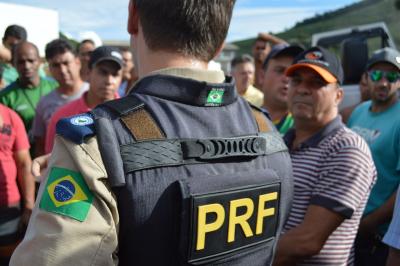Conversations on Criminal Justice – Fernanda Fonseca Rosenblatt - A call for the diversification of knowledge production in criminology
As part of the Academic Communications Skills course at the Centre for Criminology, students on the MSc Criminology and Criminal Justice have been conducting interviews with leading figures in the fields of law, crime and criminal justice in different countries around the globe. This blog draws on an interview with Dr Fernanda Fonseca Rosenblatt in Brazil.
Posted:
Time to read:
“Dialogue between South and North needs to change; we need to not just be consumers of data and theory, but we also need to be able to give data and produce theory.” For two MSc students from Latin America given the opportunity to interview Brazilian criminologist, Fernanda Fonseca Rosenblatt, it was these words that resonated most deeply. Fernanda is a Professor of Law at the Catholic University of Pernambuco in Recife, Brazil who obtained her PhD here at the Oxford Centre for Criminology. She is now the Book Review Editor for the International Journal of Restorative Justice and a key member in the Asa Branca Research Group of Criminology in Brazil. Fernanda was, in sum, the ideal candidate to help us understand: how can we contribute to change from the South? How do we, as Latin Americans, make the most of a British education in criminology? “Whatever any foreigner learns abroad is valuable because it stretches our imagination about what is possible,” even if, as she suggests, what we observe abroad may be undesirable. Perhaps the more difficult task in the road ahead for our careers is to figure out how we can also encourage criminologists from the North to expand their imagination towards the South.

Going “Beyond ‘Made‐in‐the‐North’ Criminological Narratives”—the title of a recent article co-authored by Fernanda—requires that we use methods that are context-appropriate. Brazilian and European criminologists alike need to attend to the potential for criminology Made‐in‐the‐South by emphasizing empirical, field-based research methods. “As much as possible,” she explains, “we need to get out of the literature, because the literature is euro centric. We need to go to the field. When I defend empirical work, it is to be able to free us from thinking that the normal is the European normal, the North American normal… to find our normal.” To step of out of the cosmetic, often administrative criminology found in law departments of the global south, however, also demands that we reorient our expectations about what field research can look like. Institutional access may be more limited than it is in Oxford or beyond within the borders of the UK; field research itself can involve dangerous moments, and the criminologist themself may have to navigate suspicion directed at their work. These frictions are part and parcel of the process of producing critical theory from the South, and we must empower ourselves and others to manage these challenges so that Southern voices can be heard.
In part, argues Fernanda, there needs to be more South-to-South dialogue amongst criminologists. South African and Colombian prison researchers can better relate to field sites that concern Brazilian criminologists, than, say, Norwegian prison researchers. When learning from one another and communicating our ideas over to our colleagues in the North, however, we confront language barriers. Not only is much criminological text written in English, but international criminology conferences tend to invite mostly English speakers. Translating knowledge within the world of criminology is typically the result of individual efforts, and so it needs to become subject to more systematic, institutional and collaborative support. There need to be grants to invite non-English speaking scholars as plenary speakers by providing simultaneous translation; to translate sound research into English so it can be featured in international journals; and to help scholars in the South translate from English the texts that they need to teach critical criminology to their students. Translation is time-consuming and costly, but it is a price must pay to diversify knowledge production in criminology.
We also spoke to Fernanda about her research carried out in the UK for her PhD on ‘The Role of Community in Restorative Justice’, where she analysed how communities participated in youth offender panels in England and Wales. In particular, we talked about the concept of ‘communitarian nostalgia’. Fernanda explained how the programme of youth offender panels faced practical difficulties that made it hard to follow principles upon which restorative justice is theoretically built (informality, familiarity, closeness). For instance, community members in the panel frequently changed, and this complicated the construction of bonds between them and the offender or between the latter and her community. But the problem goes beyond logistic difficulties. For Fernanda, 'we romanticise things too much', and the concept of community is one that is being romanticised. This does not mean that communities should not have any role in this field. Fernanda defended the benefits that 'short-lived' communities could bring, but she emphasised that we need to 'control our expectations'. In her words, engaging in a process that seeks to apply principles of restorative justice does not mean that ‘people are going to go home with a job’.

Fernanda also talked about the difficulties of using the concept of community in Brazil and Latin America. She mentioned that community is not an expression frequently used in Brazil. When people do use it, they usually refer to the 'favelas', and the meaning behind the expression is not always clear. Furthermore, if we can talk about something like communities in Latin America, we need to acknowledge that violence is one important aspect that has impacted on different communities. She explained that violence in this context has different forms, including militia groups, police violence, the prison system and, overall, what seems to be 'institutionalised violence'. All of these particularities affect the understanding of the concept of community in Brazil and Latin America. But while this and other sociological concepts can be problematic in the Global South, and certainly not easy to define, we must nonetheless strive towards a better understanding of concepts and theories developed elsewhere and consider their relevance to other jurisdictions, just as those in the North must strive to better understand the criminology of the South.
Keywords:
Share:
